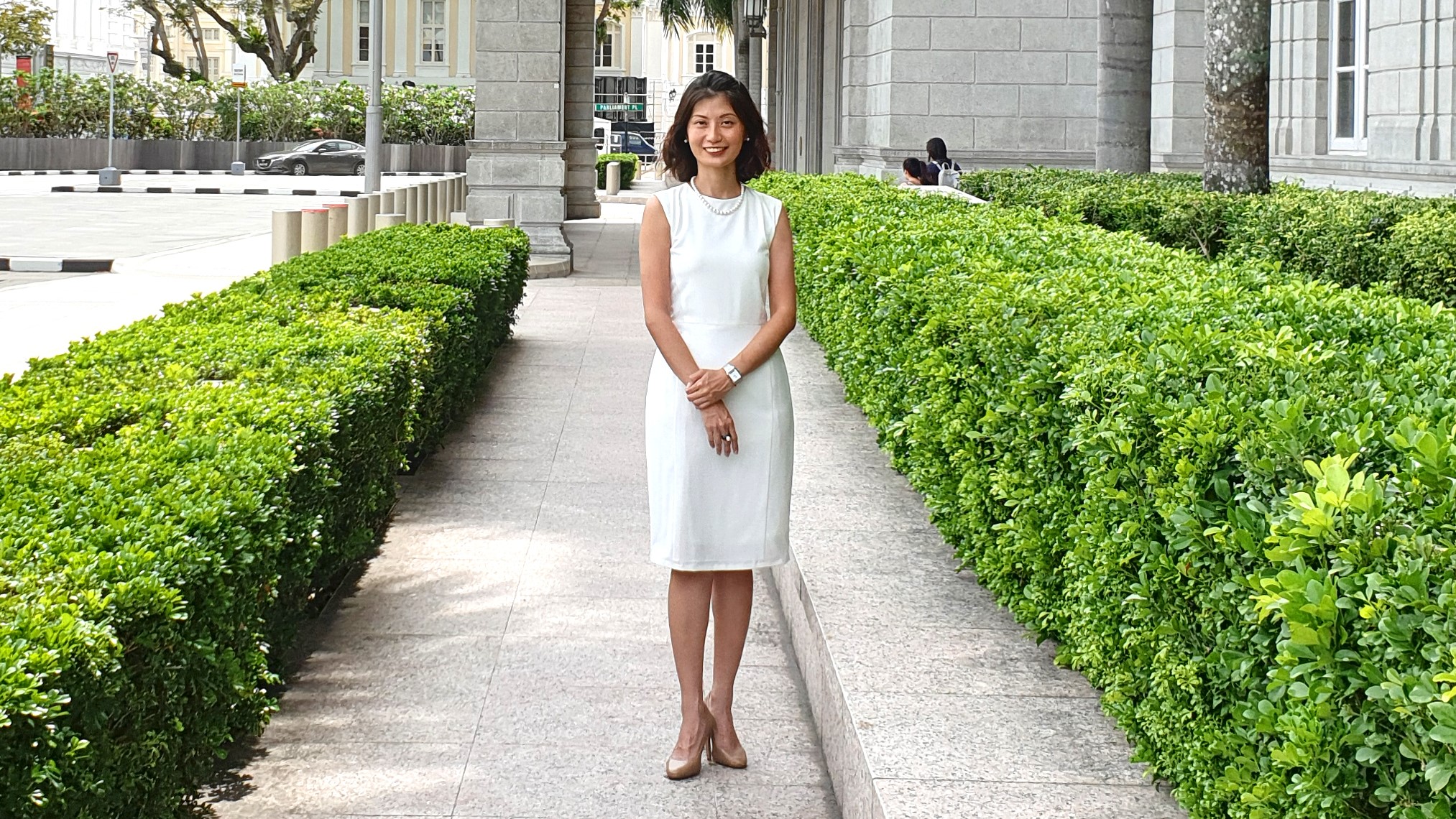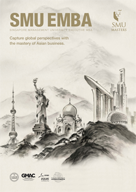
The right kind of push that jolts you of your comfort zone can vastly differ from one person to the next. For SMU Executive MBA alumni Loy Sye Ling, that push was more of a shove in the form of the global financial crisis, during which she noticed many people losing their jobs and struggling to be re-employed.
“From then on, I knew the importance of being relevant and continually employable, especially now when traditional industries are being disrupted by advancements in technology,” Sye Ling shares.
Although she was making good progress in her corporate law job, participating in mergers and acquisitions – Sye Ling decided to enrol in the Executive Master of Business Administration (EMBA) programme at SMU to further her studies.
“I took stock of my career and realised that I needed to broaden my skill sets and better understand the overall business landscape so that I can participate more effectively. Therefore, the goal was to widen my perspective, explore possibilities, and improve my skill sets,” she explains.
Sye Ling had completed her undergraduate law degree at a different university but chose SMU for her EMBA because of its “Asian-focused curriculum with emphasis on China and India, being the two largest Asian economies.” The curriculum’s residency programmes at the Guanghua School of Management at Peking University in Beijing, Indian School of Business in Hyderabad, and The Wharton School at University of Pennsylvania, were some of the biggest draws for her.
Naturally, one of her favourite parts of the programme was that the lesson formats, which were not restricted to the traditional classroom style of teaching. Some highlights included discussions with guest speakers from the Corrupt Practices Investigation Bureau (CPIB) about corruption, as well as from Microsoft who shed light on the role of technology firms in the development of artificial intelligence. Case studies came alive with first-hand interaction with representatives from GRAB and Bank Negara Indonesia. Her class also visited the headquarters of a fast-growing technology firm JD.com in Beijing and interacted with the management team.
Another aspect of the EMBA programme she particularly enjoyed was the interaction with her diverse group of classmates, who came from 15 different countries. In fact, local students only made up about a third of the class. “The EMBA class comprised mainly mature individuals who had established themselves in their respective fields. In this regard, the exchange of ideas during class was rich in content as they shared their practical experiences,” she describes.
In addition, “the classroom provided an immediate context for the modules on management, leadership and negotiation as we explored implicit biases, cultural differences and our personal communication and work styles,” adds Sye Ling.
That doesn’t mean the programme simply consisted of lively exchanges; and nor was it always a walk in the park for the legal counsel. As she explains, modules such as Financial Accounting, Political Economy, Managerial Economics, Raising Capital and Resource Management had challenged her beyond her comfort zone, but made the overall experience even more enriching. The holistic curriculum enabled Sye Ling to gain valuable insight into the inner workings of any successful business. As such, she was able to add value to her organisation through a deeper understanding of the various cogs that drive the corporate machine.
She says: “I consider a wider perspective and seek to understand the interests of the people I interact with as well as the overall business objectives. This taking-a-step-back approach allows me to be mindful as to why people act in the way that they do and helps to guide my responses to them. This increased curiosity as to how my work fits in the overall scheme of things has pushed me to evaluate my work more critically.”
And while it might be a challenge to juggle both work and specialised studies, her advice to prospective students is this: the EMBA programme is a great way to “broaden your perspective, enhance your existing skill sets, and receive quality and interactive instruction from the academic team”. In other words, it is a worthwhile investment that could propel your career prospects, and achieve your ambitions for personal growth.
The SMU EMBA Programme was designed for the global senior leader who is keen on business innovation and growth. Its innovative curriculum was created with input from over 100 corporate leaders across Asia, and consists of nine weeks of classes over 12 months.
Speak to our Admissions Advisors
Lee Kong Chian School of Business
Postgraduate Admissions
Singapore Management University,
SMU Administration Building
81 Victoria Street, Singapore 188065
Tel: +65 6828 0882
Join us at the upcoming events
Ofukacho, 1−1 ヨドバシ梅田タワ
Osaka, Kita Ward, 〒530-0011, Japan
Kyobashi, 1 Chome−3−5 三井ガーデンホテル 1F
Chuo City, Tokyo, 〒104-0031, Japan
